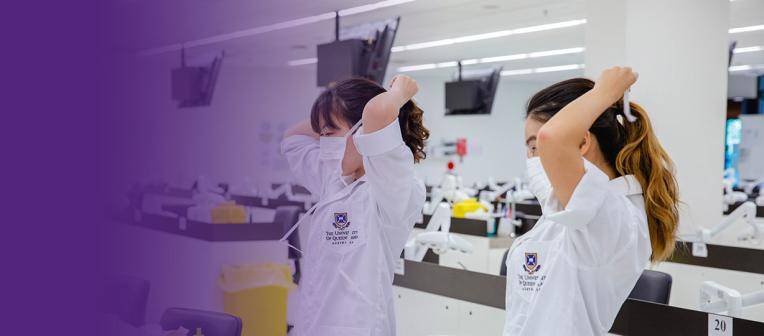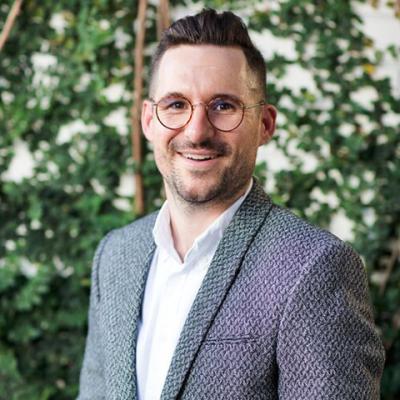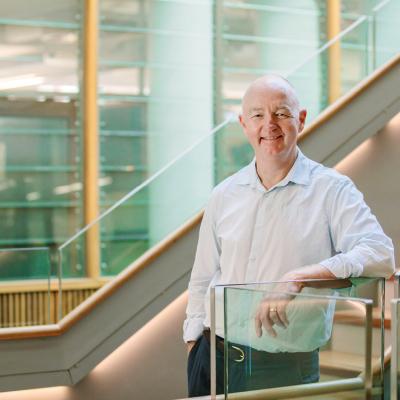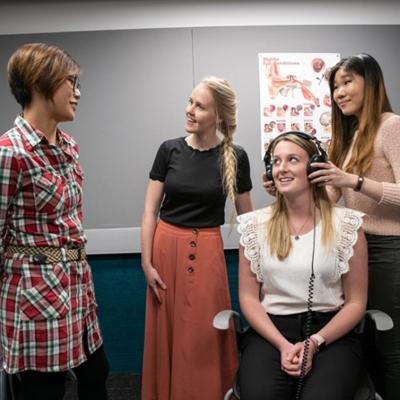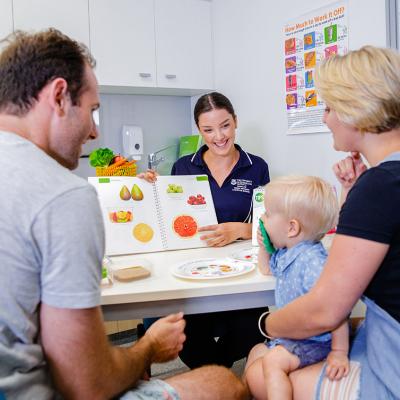The Bachelor of Health Science is a fantastic gateway degree to a massive range of careers in health and medicine.
This program is particularly useful for anyone who:
- has a broad interest in health and would like to explore potential specialisations in the field
- didn’t receive the ATAR necessary to get into a specific health-related program, such as the Bachelor of Physiotherapy (Honours)
- would like to develop a solid foundational knowledge of health and medicine before pursuing a Doctor of Medicine.
This program prepares students for both clinical and non-clinical health science careers. It’s flexible enough to cater to students who are still exploring their career options in health care, as well as those who already have a plan in mind.
In this article, we’ll look at Bachelor of Health Science jobs and career pathways, and how you can use this program as a stepping stone to postgraduate studies, opening up even more exciting opportunities in health.
Clinical health
Clinical health refers to careers in health that are directly linked to the diagnosis, treatment and ongoing care of patients. Think medical doctors, nurses, occupational therapists and speech pathologists. In many cases, people working as professionals in a clinical health setting will need to be certified or licensed by a governing body.
Below, we take a closer look at the two major career pathways in clinical health.
Medicine
One of the most popular Bachelor of Health Science jobs is in medicine. As mentioned previously, the Bachelor of Health Science offers excellent foundational knowledge for the Doctor of Medicine, which is what you’ll need to study to become a medical doctor, surgeon or general practitioner.
To study medicine at UQ, you must first complete an undergraduate degree that fulfils the two subject prerequisites (integrated cell and tissue biology, and systems physiology) for entry into the Doctor of Medicine. The Bachelor of Health Science, majoring in clinical health, not only meets this requirement, but it also covers many subject areas that will prepare students for postgraduate studies in medicine.
There are, of course, other entry requirements to the competitive Doctor of Medicine, including meeting the ATAR or GPA threshold, sitting a test and being invited for an interview.
Find out more about the pathways you can take to the Doctor of Medicine (MD) to begin your journey to becoming a medical doctor.

Information sourced from Payscale, Your Career and Labour Market Insights.
Allied health
Allied health refers to university-qualified healthcare professionals who are not working in medicine, dentistry or nursing. We're talking about radiographers, podiatrists and audiologists, to name a few. Allied health professionals specialise in specific areas of health care, but they often work in multidisciplinary teams to prevent, diagnose or treat illnesses and conditions.
Discover more allied health professions
The Bachelor of Health Science is a great place to start if you think you may be interested in pursuing a career in allied health, but you’re unsure what area you would like to specialise in. You’ll explore subject areas including biochemistry and molecular biology, human anatomy, physiology and pharmacology of human disease, and legal and ethical principles in health. By the time you graduate, you’ll have a solid knowledge of the principals of health care, and hopefully a clear idea of what profession is right for you.
A degree in health sciences will help you gain entry into postgraduate studies in your profession of choice (conditional upon you meeting other entry requirements), including a Master of Audiology Studies, Master of Occupational Therapy Studies and Master of Speech Pathology Studies, to name a few.
A Bachelor of Health Science can set you up for a varied and exciting career in health, providing you with the skills to change career paths down the track, should you wish to branch out into other areas.
Using the Bachelor of Health Science as a gateway to another undergraduate program
Did you know that if you don’t get a high enough ATAR to gain entry into your undergraduate program of choice (say, the Bachelor of Midwifery or Bachelor of Pharmacy), you could study the Bachelor of Health Science for a year, and then ‘upgrade’ to your preferred program, based on your grade point average (GPA), rather than your ATAR? UQ calls this a tertiary studies pathway.

UQ’s Bachelor of Health Sciences typically has a more accessible entry score threshold than many other health and medicine undergraduate programs. So, if your ATAR ends up being lower than you expected, there are still options for you to make your dream career in health a reality.
Find out more about the tertiary studies pathway.
Nutrition
Want to help people lead healthier lives? A career in nutrition might be for you.
Nutrition involves studying the nutrients in food and how they can help prevent disease and improve health. It's about assisting people to find the right nutritional balance in their diet for their individual needs.
Nutritionists can work in a range of sectors including public health, media, education, research and consulting. You may find yourself exploring specialties such as naturopathy or diabetes education, or applying your knowledge in a personal training and fitness setting.
If you want to work in a clinical setting (such as a hospital or residential care), you’ll need to become an accredited dietitian.
Dietetics
A dietitian is an accredited health professional who is qualified to perform medical nutrition therapy. Dietitians treat many different types of conditions by using their scientific knowledge of nutrition to recommend diet changes and healthy living strategies. Unlike nutritionists, dieticians can work in clinical settings such as hospitals and private practices.
Undergoing study to become a dietitian involves completing a university dietetics program accredited by Dietitians Australia. At UQ, you can study dietetics with the Bachelor of Health Sciences, majoring in nutrition, and seek accreditation as a dietitian by following your undergraduate studies with the Master of Dietetics Studies.
Even though you need to complete a bachelor’s degree before undertaking a Master of Dietetics Studies, Year 12 students may be able to apply for provisional entry into this master’s program.

Public health
Public health is about working with communities to promote health and wellbeing. It encompasses understanding health policy and decision-making procedures, and how communities interact with health services. Public health also involves the delivery of information and services regarding disease prevention and early detection.
There are many health science degree jobs that can be pursued in public health, and a lot of opportunities for individuals with an entrepreneurial outlook. If you enjoy working with local communities, have great communication skills and enjoy identifying problems and thinking creatively to address them, you may flourish in the field of public health.
Below, we take a closer look at how one of UQ’s Bachelor of Health Sciences graduates is transforming public health service delivery, and outline two potential career paths in health promotion.
Meet Mitchell, Director at Beacon Strategies
Mitchell graduated from UQ’s Bachelor of Health Sciences in 2008 and went straight on to pursue postgraduate studies with a Master of Public Health. He’s now co-founder and director of Beacon Strategies, a project management and consultancy company working in the public health and social services sectors.
Beacon Strategy’s mission is to support organisations in planning, designing, implementing, and evaluating their projects to produce positive outcomes for people and service users.
“Our work mainly falls into one of two categories. We work a lot with Primary Health Networks to provide sound advice about where funding should be allocated and how programs should be designed to make a difference for vulnerable community members,” says Mitchell.
“We also do a lot of work with not-for-profit organisations to support them in designing or redesigning services. Many not-for-profits have difficulties in resourcing the ‘thinking’ part of operationalising a new program or service, so we focus in on how we can make their services more impactful and sustainable.”
Mitchell says Beacon Strategy’s goal is to help make specialist projects work. The company has worked on everything from suicide prevention plans in Far North Queensland to community care service design in South Eastern NSW and regional expansion strategies for leading not-for-profits.
After spending years working for government organisations, Mitchell understood how long it could take to get important projects off the ground. His aim with Beacon Strategies is to assist organisations to make a real difference, efficiently.
Mitchell explains that the Bachelor of Health Sciences helped to shape his career as a consultant.
“Developing and honing skills in critical analysis, systems-level thinking, planning, evaluation and research more generally primed me nicely to be able to define problems and come up with solutions,” he says.
The diverse range of subject areas covered gave Mitchell a broad overview of the health issues faced by the public at large – something that’s invaluable when he is consulting in this sector.
“I genuinely believe that a Bachelor of Health Sciences can be a pathway into delivering really impactful work within organisations (e.g. delivering special projects) or external to organisations as an external adviser,” Mitchell says.
“Some go on to build a career as a clinician or health professional (which I absolutely respect) and others go on to use their skills to improve the way health programs and services are implemented through planning, design and evaluation.”
Want to know more about the types of projects Mitchell and his team at Beacon Strategies work on? Discover how they’re making positive changes in the public health sector.
Infectious disease epidemiology
Infectious disease epidemiology refers to the study of infectious diseases in populations, how they’re transmitted, what makes them prevalent and how they can be treated and prevented. Research in this area helps to inform public policy and instigate evidence-based practices, thereby assisting to keep local communities safe.
Without infectious disease epidemiologists, we wouldn’t know the following about COVID-19:
- people aged over 60 are more vulnerable to the effects of the disease
- the incubation period is 1-14 days
- people who are not displaying symptoms can still spread the disease
- keeping at least 1.5 metres distance from others can help slow the spread of the disease.
Find out more about how epidemiology helped to keep the public safe against the spread of COVID-19.
So, how do infectious disease epidemiologists come to these conclusions? Through conducting field surveys, surveillance and clinical trials, for starters. They also carry out predictive risk mapping and modelling, and they use interactive and dynamic data visualisation tools to present their findings.
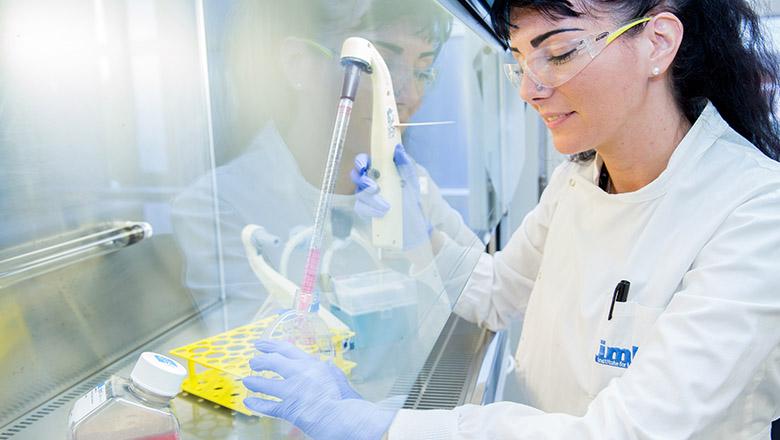
A career in infectious disease epidemiology might be for you if you’re a keen researcher with good maths skills, a passion for problem-solving and an aptitude for analysis.
Many UQ students interested in specialising in epidemiology will begin their studies with a Bachelor of Health Science, majoring in public health, and go on to enhance their knowledge with a Graduate Certificate, Graduate Diploma or Master of Epidemiology.
Environmental health
Environmental health refers to the physical, chemical and biological environment and how it affects a person or community’s health and wellbeing. Environmental health officers focus on how healthier environments can be created to sustain healthier lifestyles.
“Healthier environments could prevent almost one quarter of the global burden of disease.”
Imagine if everyone had access to clean air and water, healthy and safe workplaces and readily available sanitation and hygiene products. What a difference that would make to a community’s health. You can contribute to making these differences through environmental health studies.
Begin your environmental health studies with a Bachelor of Health Science, majoring in public health, and continue your path towards a career in this field with a Graduate Certificate, Graduate Diploma or Master of Environmental Health Sciences.
Want to know more about the types of careers you can pursue with a university degree in health and medicine?

